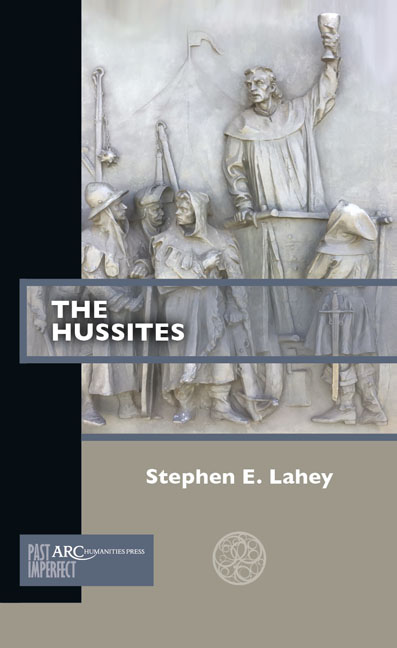Chapter 1 - Hussite Theologians
Published online by Cambridge University Press: 20 November 2020
Summary
The Hussite movement was defined by its theology in a way difficult for modern, or postmodern, readers to understand. The 1986 movie The Name of the Rose, based on Umberto Eco's (strangely bestselling) novel, featured a scene in which a roomful of angry Franciscans, Benedictines, Dominicans, and high ranking bishops and a cardinal had gathered to resolve a problem that had caused the church to reach a point of actually persecuting a minority of Franciscan friars. The debate, it was announced in dead seriousness, was whether Christ and His disciples did, or did not, own the purse that contained their pooled meagre resources. The effect in the movie is to cause incredulity in the audience. This was what had led to political unrest, the detective work of Inquisitors, and the prospect of accusations of heresy? But Eco's portrayal of the argument behind the Franciscan Poverty controversy was fairly accurate: some friars were indeed willing to go to the stake rather than admit that the early church had truck with property ownership. Our secular society's departure from the medieval world is so profound as to make it difficult to believe that people would risk their lives on such apparently trivial concerns. With the Hussites, the issue uniting the otherwise fractious alliance of Tábor and Prague was agreement that the standing church practice of not offering the consecrated wine to the laity was so serious as to merit taking up arms. In this chapter, I will describe the reasoning, and the consequent debates on this and other subjects that animated Hussitism.
The Four Articles of Prague of 1421 will serve as a general organizing point, because they contained the core of what the Hussites believed should define a Christian society. Three of these four articles were already being discussed in Prague in 1388, when Wyclif's works began to appear there. The fourth, the issue of lay access to the chalice, arose shortly after Jan Hus left Prague for his fateful trip to Konstanz. We will survey a broad range of thinkers, who represent an equally broad range of theological positions.
- Type
- Chapter
- Information
- Hussites , pp. 7 - 44Publisher: Amsterdam University PressPrint publication year: 2019

